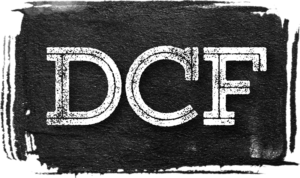There are several questions I’ve been asked so repeatedly in my life that I can barely stifle my eye-roll when they crop up time and again. In my former career, my favourite had to be “Oh! My cousin’s uncle’s sister’s boyfriend is a policeman in (insert town many miles away). Do you know Steve?”
No. No I don’t.
Now I write, I get different questions.
“Do you have a real job too?” Rude.
“Are your books on TV yet?” Nope.
“Are you JK Rowling?” Err, no…
“You? A writer? I didn’t even know you could read!” Rude.
“Have you got a book deal then?” Yeah, I gave myself one!
“Are they any good?” Well I think so. So do a few other people, I’m told…
And that leads me to the subject. If there’s one thing that every human being on the planet has, it’s an opinion. Some people like my books, some people don’t. Some people think £2.80 ($3.48 per today’s exchange rate) is a reasonable price to pay for a mocha-chocca-frothy-thing but baulk at paying the same for a book. Some people don’t like violence, others want more. Some people think the premise of the After It Happened series is laughable; others find it feasible.
Point is, you can’t please everyone. Nor should you try to, as a writer or anything else really. (Customer service advisors: please disregard that last piece of advice) So how, as a writer, do you respond to public negativity?
First rule: you don’t.
We’ve all seen those kinds of reviews on Amazon. A few paragraphs of waffle about just how awful this person’s story/writing/grammar is followed by a sarcastic and cutting assessment of how the writer probably lives in their mother’s attic room and condescends to say ‘well done for trying’. Basically, a short report on why they feel they are a superior human being to the writer. I genuinely read one that stated “I could write a better book than this” and then responded rather nastily when someone (someone who doesn’t look at all like me, honest) commented that perhaps they should give it a go instead of writing bad reviews.
Responding to these negative reviews leads to a slippery slope where a writer will dedicate half of their day to internet trolls and never actually do anything other than raise their blood pressure.
So, the second rule of publicly responding to negativity is this: you don’t.
As a writer, ask yourself if you learned anything from their feedback which would help you do a better job. As a reader seeing that negative review, ask yourself if the writer could read that and do a better job. As a writer or a reader, ask yourself if the reviewer is simply using the interwebs to try and say that they are ‘way more cleverer than what the writer is.’
If, as a writer, you simply cannot allow a comment to go unchallenged, try not to respond with “Thanks for the £2.99, [smiley face] Lol!”
So, my point is this. Why bother letting someone else’s negativity into your life? Constructive criticism and developmental feedback is one thing; it can help people learn but if it’s just negativity, in the immortal words of princess Elsa…
…Let It Go.
Keep Reading
DCF

